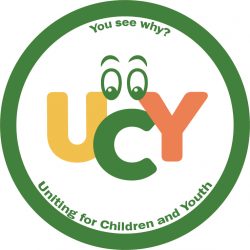Question 2 – Zone 1 Responses
Contents
-
-
- The Question in brief
- Responses from:
- Jon Flemming
- Lynn Scott
- No Responses
-
Link: See Responses to Question 2: Parts 1 – 6 for a table summary of the first 6 parts of Question 2.
The Question in Brief
There are 8 parts to this question. “Yes” or “No” answers were required for the first 6 parts, but candidates were welcome to qualify their answers. Part 7 required a prose answer, and part 8 was optional. In brief, the question asked the following. The full text of the question is found at: Question 2 – Systemic Innovation.
- Do you believe that public education needs to evolve from its industrial management practices to ones more appropriate for today? Y/N
- Do you agree that formal scheduling is a major barrier to systemic innovation? Y/N
- Would you act to establish an OCDSB Systemic Innovation Advisory Committee made up of student, parent, teacher, administrator, ministry, university professor, business and community representatives? Y/N
- If “Y” to #3, would you act to have the committee established in time for systematic field studies to begin in September 2019? Y/N
- Would you support developing a board wide inventory of innovative actions by teachers and principals? Y/N
- Would you help to create partnerships with universities that want to conduct studies of how school boards can transition from the industrial model to one that suits today’s needs? Y/N
- What is your vision of the ideal school?
In alphabetical order below
– Jon Flemming
– Lynn Scott
Jon Flemming
- Y
- N
- Y
- Y
- Y, absolutely
- Y, absolutely
- I don’t have any preconceived notion of what an ideal school looks like, only what it should accomplish, and that is to prepare every kid for their real world. For some that’s a first job, others it’s trade or university. The everyone-is-equal approach is failing us. I believe everyone needs to be educated in an equitable manner, based on their unique situation, their choices, their strengths and their weaknesses. Gifted students need to be nurtured in their own was, as do special-needs students. What I can say, is the system as it is today is failing. I interview dozens of public school graduates on an annual basis and most of them are woefully prepared for what’s next. This is especially true when it comes to math and English skills. So, I’m open to considering whatever changes need to be made, big or small, to address what I see as the major failing of our system, from an entrepreneur’s perspective. I know when I ask business owners from all sectors of the economy, blue and white collar, what their biggest challenges are, I constantly hear “lack of skilled labour” as a top 3 response, that we have a crisis on our hands that needs to be addressed, starting on Oct. 22.
Lynn Scott
- Yes
- No. Some degree of formal scheduling is necessary for the effective use of specialized facilities in schools. Excessive formal scheduling is not in itself a barrier, but is symptomatic of cultural and attitudinal barriers to systemic innovation.
- Maybe, but only with clarification on specific mandate, to whom and by what mechanism advice was to be provided, how to ensure inclusivity in the membership, and how members would be appointed to bring useful expertise to the table. The Board needs to review its entire range of advisory committees to improve functionality and clarity of roles, guarding against unnecessary duplication of effort, and considering the quantity and nature of resources needed to best support the advisory committees’ effective work. Such a review, however, would not necessarily prevent the formation of new advisory committees.
- The proposed timeline is unrealistic.
- Yes, but only if such an inventory could be created and maintained without diverting time and resources from essential functions. It should be noted that mechanisms already exist for sharing innovative practices within superintendencies.
- There is already a long-established process for the conduct of research in OCDSB schools as well as a policy regarding partnerships, including with post-secondary institutions. In addition, the OCDSB periodically engages with universities to conduct specific research projects. Credible research proposals are welcomed, although the number of projects may be constrained by the availability of resources and/or the impact on participating schools. Motions for new initiatives put forward by trustees, that need external research support, can include direction as to seeking and funding that research support through partnerships or by other means.
- What is your vision of the ideal school? This question cannot be answered without asking “The ideal school for whom?” and “The ideal school for when?” Children’s needs change as they grow and learn, and what is ideal for our youngest students may not be ideal for our oldest students. That said, I believe that a good school needs to provide opportunities for developing the capacity for independence through unstructured play and independent learning. Program should be delivered in ways that support the individual differences and individual learning needs of students. Delivering program should be seen through the lens of letting children learn, with teacher acting as facilitator for the learning process. Students will be more engaged if they can find and pursue their individual interests within the required curriculum and have a reasonable range of choices for the elective curriculum.
No Responses
– Gurprit Kindra – decided to remain inactive
– Ken Lumsden
– Brandon Rabideau

